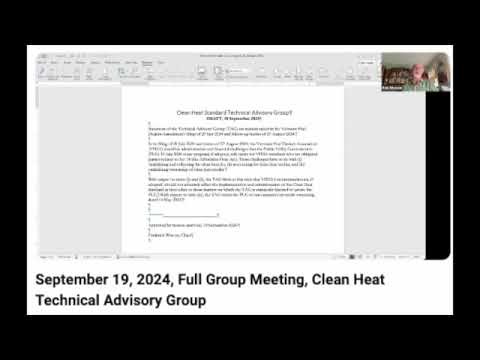Efficiency Vermont Memo Implies Clean Heat Standard is Unworkable
Presents two options for scrapping it and starting over. Vermonters won’t like them either.
You know the story. For over three years, Joe Biden’s critics repeatedly pointed out what should have been obvious to anyone paying attention that the guy wasn’t mentally with it. But despite evidence steadily piling up in support of that conclusion, the President’s supporters insisted he was fine. Eve…
Keep reading with a 7-day free trial
Subscribe to Behind the Lines: Rob Roper on Vermont Politics to keep reading this post and get 7 days of free access to the full post archives.



